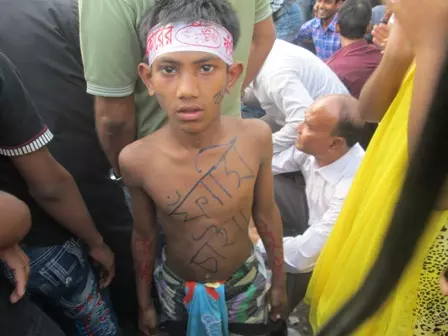
- Home
- India
- World
- Premium
- THE FEDERAL SPECIAL
- Analysis
- States
- Perspective
- Videos
- Sports
- Education
- Entertainment
- Elections
- Features
- Health
- Business
- Series
- In memoriam: Sheikh Mujibur Rahman
- Bishnoi's Men
- NEET TANGLE
- Economy Series
- Earth Day
- Kashmir’s Frozen Turbulence
- India@75
- The legend of Ramjanmabhoomi
- Liberalisation@30
- How to tame a dragon
- Celebrating biodiversity
- Farm Matters
- 50 days of solitude
- Bringing Migrants Home
- Budget 2020
- Jharkhand Votes
- The Federal Investigates
- The Federal Impact
- Vanishing Sand
- Gandhi @ 150
- Andhra Today
- Field report
- Operation Gulmarg
- Pandemic @1 Mn in India
- The Federal Year-End
- The Zero Year
- Science
- Brand studio
- Newsletter
- Elections 2024
- Events
- Home
- IndiaIndia
- World
- Analysis
- StatesStates
- PerspectivePerspective
- VideosVideos
- Sports
- Education
- Entertainment
- ElectionsElections
- Features
- Health
- BusinessBusiness
- Premium
- Loading...
Premium - Events

x
A young protester demanding capital punishment for 1971 War Criminals. File photo: Wikimedia Commons
It's time UN and US punished the mass murderers and restored dignity in our part of the world
As Bangladesh observes its 54th Independence Day on March 26 – the day Pakistan's brutal army unleashed a genocide on 1971 to crush the Bengali struggle for independence – it is time to look back on why the UN has not yet recognised the genocide and why Pakistan refused to try the 195 war criminals identified by Bangladesh, despite its own Hamidur Rahman Commission admitting to "serious war crimes" by the Pakistan army in 1971.
I am a child of liberation who was just five when my countrymen won freedom from an oppressive Pakistan military junta over an 'ocean of blood'.
On the streets of Dhaka, when I led protest rallies in support of the 1971 War Crimes Trials that Sheikh Hasina's government started after coming to power in January 2009, I raised the slogan, "Amar Mati, Amar Ma, Pakistan hobe na" ("my land, my mother will never be Pakistan").
Worst war crimes
So I am a passionate campaigner for UN recognition of the 1971 East Pakistan genocide and will ceaselessly push for the trial of the 195 Pakistani war criminals who we identified as responsible for the worst war crimes in 1971 in what was then East Pakistan.
Some Islamist Opposition elements are shamelessly advocating a boycott of Indian goods now in Bangladesh because Delhi supports the Hasina government. But China also supports Hasina – will they dare advocate a boycott of Chinese products?
If we Bangladeshis have to boycott any product, it should be the products made in Pakistan. Because the Pakistanis always believed we Bengalis are imperfect Muslims and so, in 1971, tens of thousands of our women were serially raped in Pakistani army camps to produce "authentic Muslims".
Case of ingratitude
As an actress, I movingly played the role of one such woman, Ruposhi, in the award winning film Ruposhi Rohosyo. Denying the sacrifices made by Indian soldiers for our freedom will be the worst case of ingratitude.
The push for the UN recognition of the 1971 genocide gained steam when Sheikh Hasina came to power.
The delay was caused by successive Islamist regimes that ruled Bangladesh after the 1975 coup, who did not push the case because they were soft on Pakistan and harsh on Awami League and other secular forces. But I also consider this to be the biggest failure of the global body 75 years after the UN Convention on the Prevention and Punishment of the Crime of Genocide came into force.
What's a genocide?
On December 9, 1948, the international community formally adopted a definition of genocide within the 1948 convention – essentially enshrining the message of "never again" in international law.
Experts have questioned whether the convention has achieved its objectives and pointed out the key reasons for its failure.
* First, the term "genocide" is applied too slowly and cautiously when atrocities happen.
* Second, the international community fails to act effectively against genocides.
* Third, too few perpetrators are convicted of their crimes.
Sociologist Dr Rachael Burns points to the many genocides that have occurred since the 1948 convention and its ratification in 1951, and only three of which have been legally recognised – and led to trials – under the convention: Rwanda in 1994, Bosnia (and the 1995 Srebrenica massacre), and Cambodia under the 1975-79 Pol Pot regime.
Many, like the Indonesian genocide (1965-66) or the Guatemalan genocide (1960-96) or the genocides committed under Saddam Hussein against the Kurds in 1988-91 in Iraq, fall in the category of unrecognised genocides. But topping that list is the 1971 East Pakistan genocide.
Why it needs to be recognised
As a passionate and patriotic Bangladeshi, I would like to argue that the UN should immediately recognise the 1971 East Pakistan genocide against Bengalis without any further delay for three reasons:
* The number of people killed in East Pakistan by Pakistani forces (regular army and collaborator paramilitaries) in eight months, from March to December 1971, far exceeds the number who died in the three UN-recognised genocides.
In these eight months, the Pakistani forces massacred nearly three million Bengalis of all faiths and tribesmen. In comparison, 1.5 to 2 million deaths occurred at the hands of the murderous Khmer Rouge, but these deaths were over four years. Hutus massacred between 5,00,000 to 6,50,000 Tutsis during the Rwanda civil war in 1994. And the Balkan genocide casualty toll never crossed six digits.
* The genocide in East Pakistan (now Bangladesh) was not just limited to random killings but involved both targetted killings (of intellectuals to leave behind a brain deficit) and also large-scale rapes (nearly 300,000) and molestations of Bengali women as well as arson.
* The regular army of Pakistan carried out this genocide – not the militias – which the US and NATO have since designated as a "useful ally in the war against terror".
Poster Depicting Pakistani Army Atrocities in 1971 - Liberation War Museum - Dhaka - Bangladesh. Pic: Wikimedia Commons
Why it's important
Recognising the 1971 East Pakistan genocide (because it happened before Bangladesh was officially born) by the UN is not merely important for the global body to regain its credibility and effectiveness but also to expose a military institution that is seen as of much strategic value in the West.
India's former army chief Gen Shankar Roychoudhury once said "a brutalised army is no good as a fighting machine" when he developed his human rights charter for the Indian army.
The West has been befooled, somewhat willfully, into believing Pakistan's army is useful in fighting terror in Afghanistan. There is enough evidence now to suggest the Pakistani generals were always hunting with the hound and swimming with the crocodile.
They were allowing the US and NATO a springboard for anti-Taliban operations but allowing the Taliban safe shelter, training and weapons in Pakistan, without which the Taliban would have never survived, let alone emerged victorious to take over the country.
What the West must do
The least the Western powers, especially the US (which spends much effort chasing human rights violations in Bangladesh now), can do is to recognise the 1971 East Pakistan genocide officially.
India has already backed Bangladesh's present government to push for UN recognition of the 1971 East Pakistan genocide. India's influence as president of the Security Council and chairman of G-20 will surely help, but the West must push the case.
It often dominates and drives the narrative and the debates within the UN system. The least they could do is stop fooling their citizens and taxpayers by sustaining their militaries about the dual role of the Pakistani army in the war against terror.'
What's to be gained
By recognising the 1971 genocide in East Pakistan, they can expose the evil institution called the Pakistan army, which denied Bengalis our right to life and which now denies its citizens basic democratic rights. It is the biggest force of destabilisation in South Asia.
The UN recognition of the 1971 East Pakistan genocide and the 2017 Rohingya genocide will help call out and expose two evil military institutions that threaten democracy and the dignity of life in our part of the world.
It is high time the West stopped chasing phantoms and did its bit to punish mass murderers in our region. Or else we would be under no obligation to take the human rights sermons of the West seriously.
(The Federal seeks to present views and opinions from all sides of the spectrum. The information, ideas or opinions in the article are of the author and do not necessarily reflect the views of The Federal.)
Tarana Halim is a Bangladesh MP and a central executive member of the ruling Awami League. She is a former actor and lawyer.
Next Story


